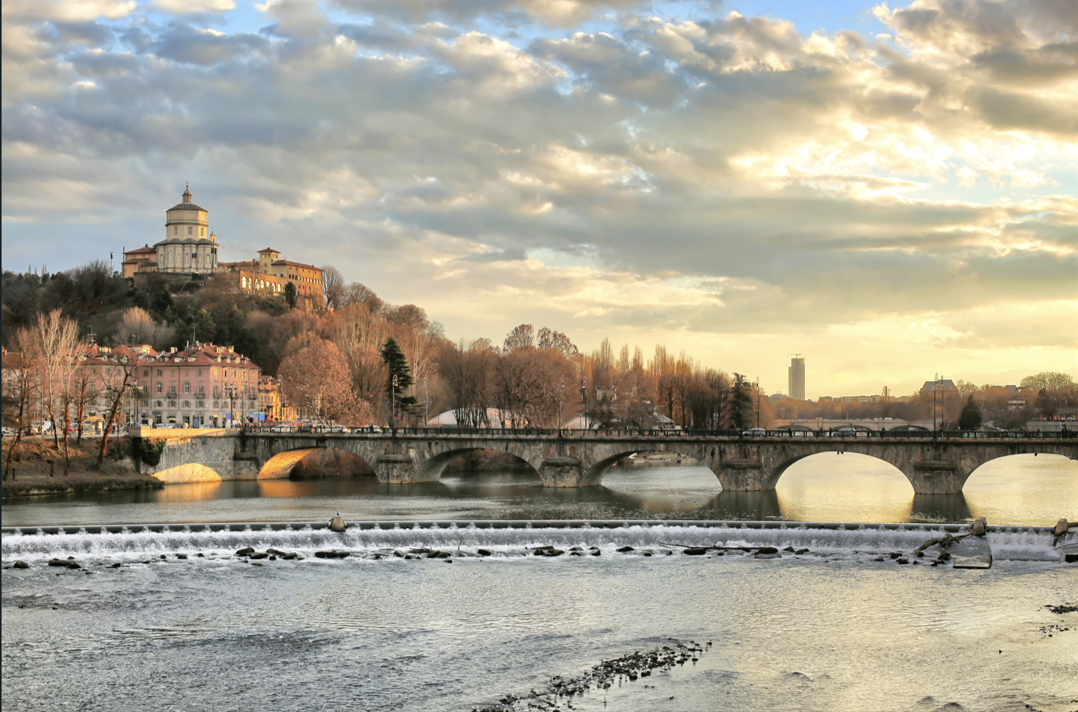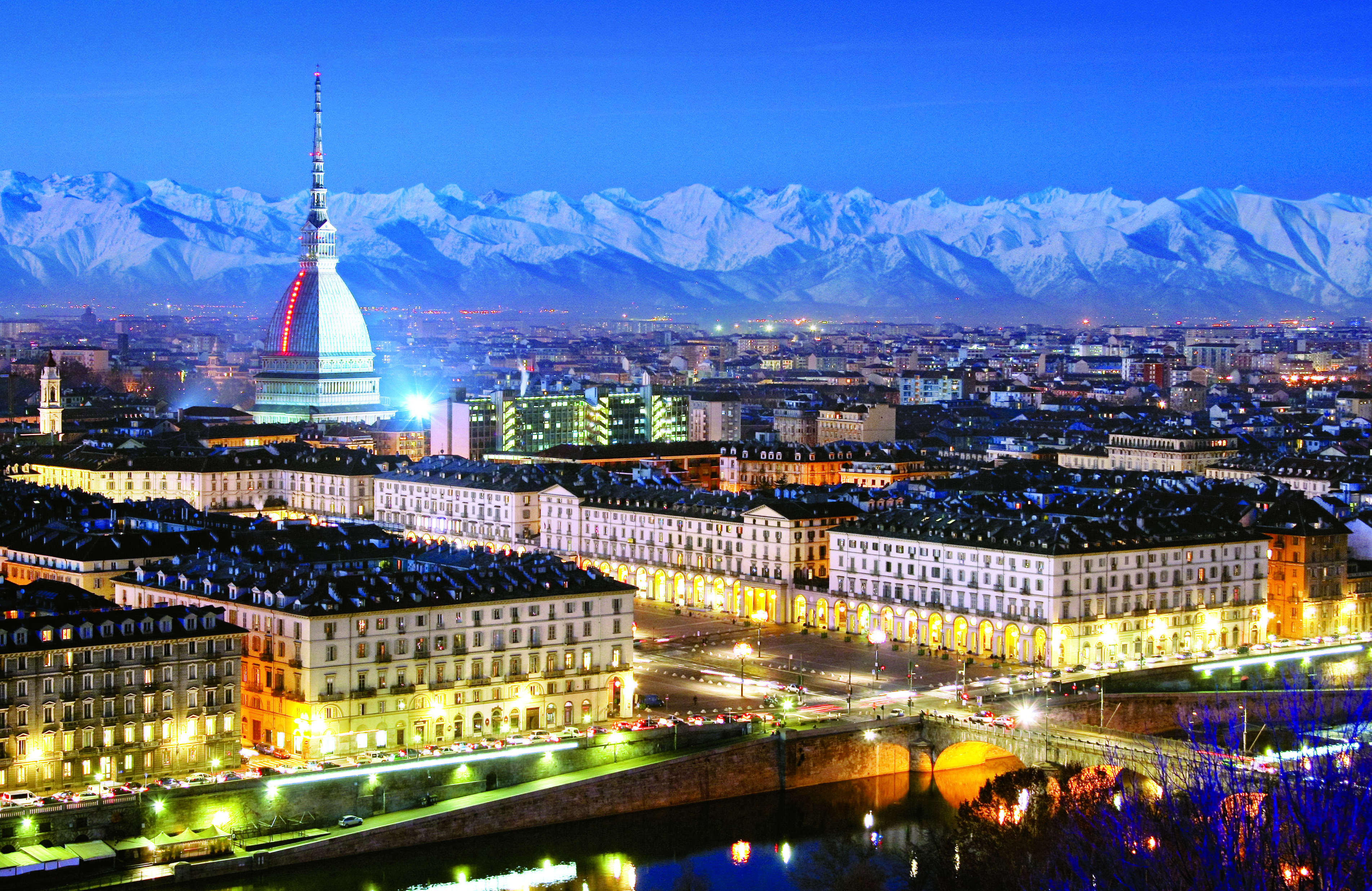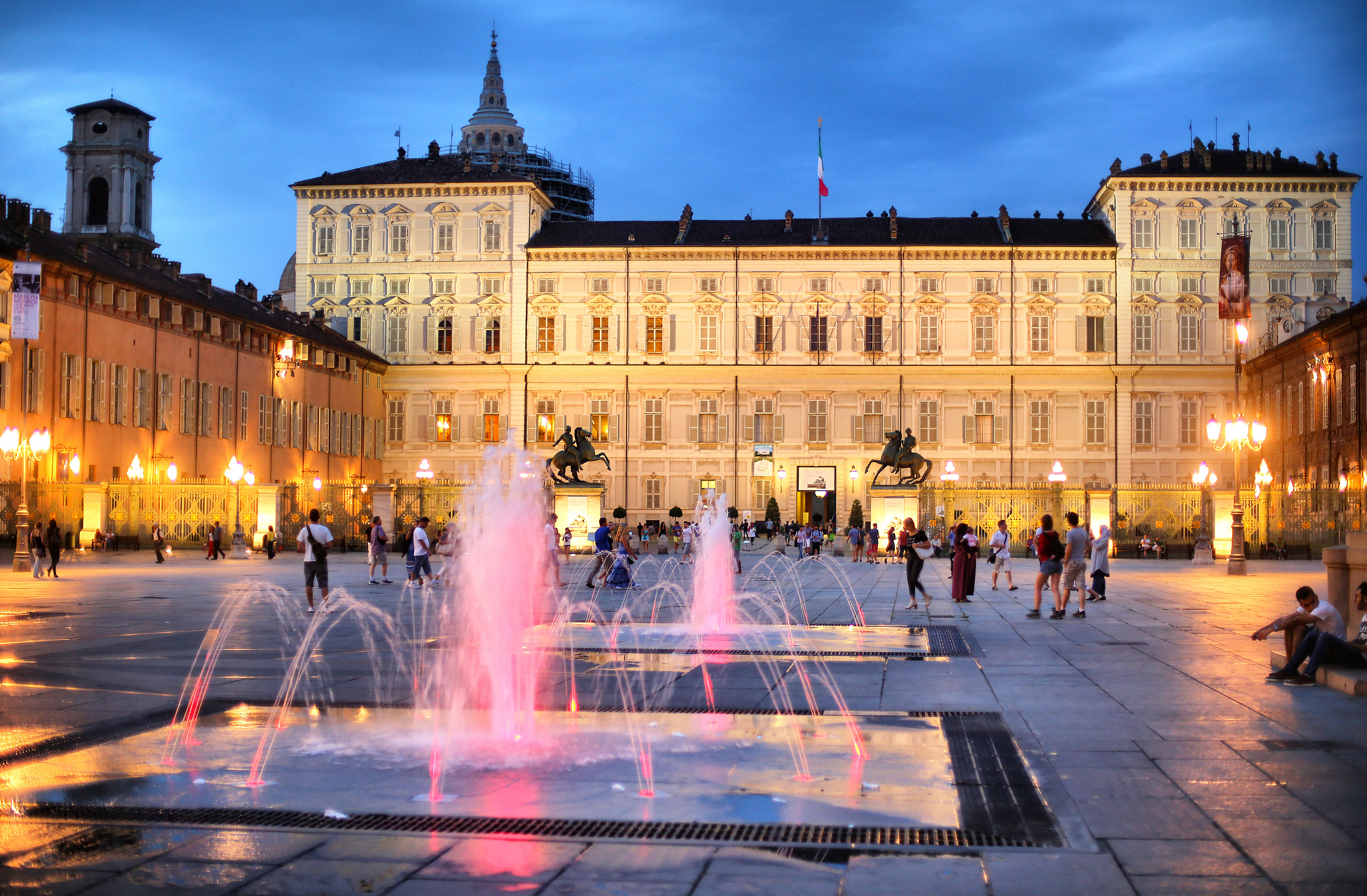City
Turin, located in the northwest of Italy, is an elegant and historically rich city, surrounded by the Alps. As the capital of the Piedmont region, the city is renowned for its stunning architecture, vibrant culture, and significant industrial history.
The city offers an impressive blend of Baroque palaces, stately squares, wide boulevards, and elegant arcades, such as Piazza Castello and Via Roma. One of its most iconic landmarks is the Mole Antonelliana, a towering structure that dominates the city's skyline and houses the National Cinema Museum. Turin is also famous for the Royal Residences of the House of Savoy, which are listed as UNESCO World Heritage sites.

In addition to its architectural beauty, Turin is a hub of innovation and industry, most notably known as the home of car manufacturer FIAT. The city boasts a vibrant culinary scene, renowned for its refined cuisine, including dishes like bagna càuda and vitello tonnato, as well as local products such as truffles and wines from the surrounding hills.
Turin seamlessly blends a rich past with a dynamic future, making it a fascinating destination for both tourists and business travelers alike.
Click for a city map

